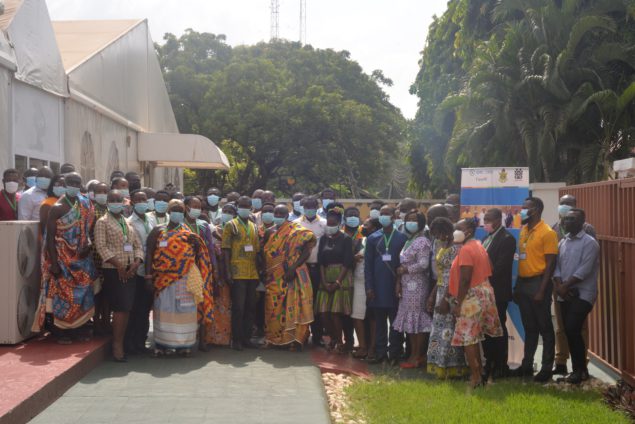A public health expert at the Kwame Nkrumah University of Science and Technology, Prof Ellis Owusu-Dabo is calling on the government to adopt a mobile phone-based IVR system to complement and strengthen existing health information system for early detection of childhood illnesses.
He believes the system has the potential to improve child survival in line with Sustainable Development Goal 3.
Prof. Owusu-Dabo said this during a stakeholder meeting in Kumasi.
The current under-five mortality rate in Ghana stands at 60 per 1000 live births.
These deaths are largely due to preventable diseases including malaria, upper respiratory infections, diarrhoeal-related diseases, prematurity, and asphyxia.
One of the principal factors for these deaths results from delays in health-seeking behaviour among caregivers. These caregivers lack the capacity to identify and pick up early symptoms of disease in their children for early intervention.
Meanwhile, a well-functioning health system with a robust Health Information System (HIS) could easily respond and deliver real-time data to manage most of these preventable childhood illnesses, amid increased mobile phone use in Ghana.
The MobChild intervention study sought to address these gaps in health-seeking behaviour by utilizing the multi-purpose function of a Mobile Phone-based Health Information system (MHIS).
This was designed with an Interactive Voice Response (IVR) technology to empower caregivers to identify health problems of their children for early intervention.
This programme was rolled out from January 2019 – December, 2021 with a team of experts from Kwame Nkrumah University of Science and Technology, Ghana Health Service and some other stakeholders from the Asante Akim North District of Ashanti Region.
The results show that a total of 2,045 calls were recorded by the system. Of the registered calls, there was an overall uptake of 66% (580/880).
Again, out of the total calls made to the system, over 1400 were unregistered-without prior registration by the system but managed to make calls for help.
All caregivers accessed the system for health advice regarding what to do with their sick children.
For diarrhoeal diseases, a 6-monthly survey revealed a decrease in the incidence from 14.9% at baseline, to 17.4% at first follow-up, 6.6% second follow-up and 4.5% at end line respectively.
While for fever, the results were correspondingly as follows; 17.2%, 16.8%, 13.7% and 29%, respectively.
Additionally, for our other principal symptom of disease-cough, the corresponding figures were 17.4%, 17.0%, 8.6% and 6.7% respectively.
The stakeholder meeting is meant to share the findings of the project.
The meeting also discussed the future of MobChild project and its implementation in the healthcare system in Ghana.
Latest Stories
-
Dr Prince Hamid Armah: Eight years, 2 different stories
50 minutes -
Keep the light on as we did; you’re in government – Herbert Krapa
1 hour -
Independence Square glows as Mahama takes presidential oath again amid grand celebration
1 hour -
COP Tiwaa Addo-Danquah’s bust at EOCO destroyed
2 hours -
Trump threatens ‘very high’ tariffs on Denmark over Greenland
3 hours -
Full text: Mahama inaugural speech
3 hours -
CAF increases CHAN prize money to $3.5m
3 hours -
NFF appoints Éric Chelle as Head Coach of the Super Eagles
3 hours -
Collins Adjei Kuffuor writes: Mahama’s inaugural speech – a blueprint for Ghana’s future
4 hours -
Ghana is open for business again – Mahama assures business communities
4 hours -
Sege MP holds dinner with TOSA 96
4 hours -
Collins Adjei Kuffuor writes: Ghana’s tax system needs urgent reform
4 hours -
Rebecca Tweneboah Darko: ‘I love you King Promise, marry me’
5 hours -
Who becomes Mahama’s minister for Tourism, Arts and Culture?
6 hours -
Dagbani Wikimedia User Group honours 11 Wikimedians for excellence in 2024
6 hours

